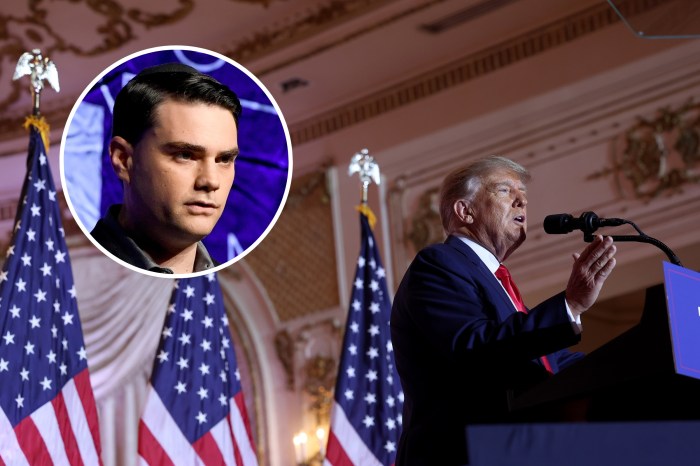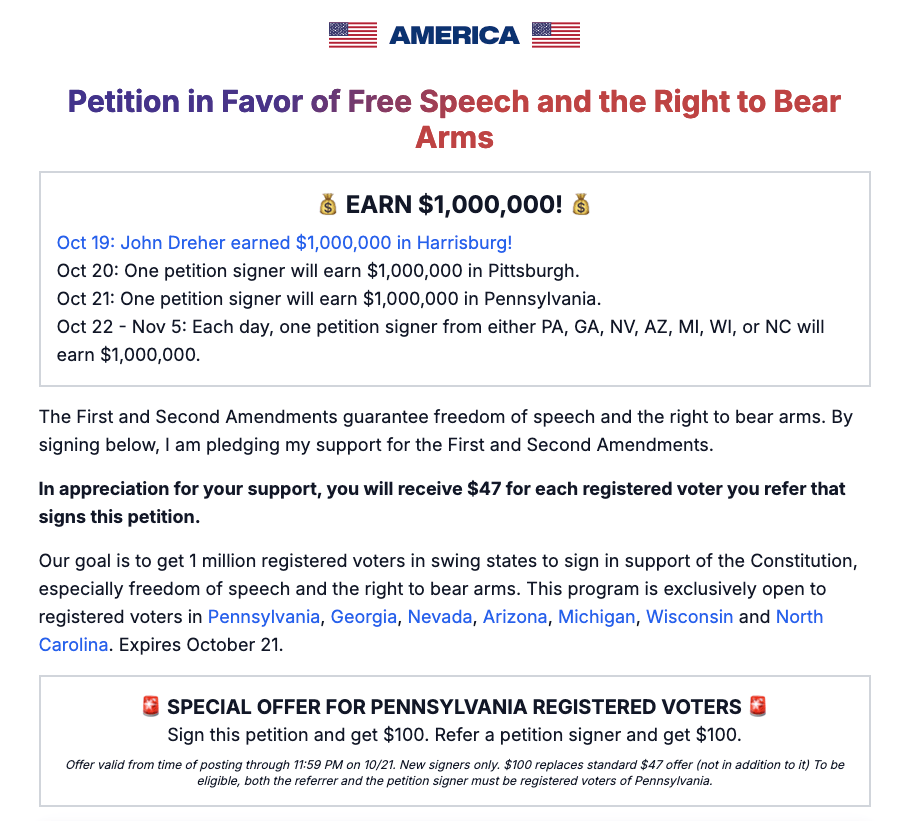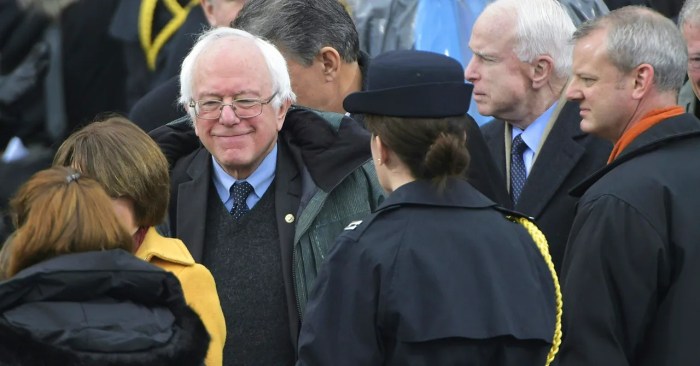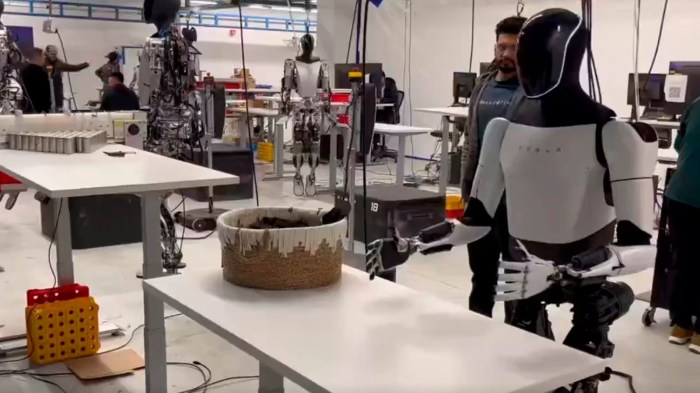
Tesla short sellers pocket about 4 billion profits after musk trump spat. This massive windfall highlights the intricate dance between public personalities, market volatility, and shrewd financial strategies. Elon Musk’s public pronouncements and the ensuing spat with Donald Trump clearly influenced investor sentiment and stock price fluctuations. We’ll delve into the historical context of Tesla, the specifics of the Musk-Trump conflict, and the analytical framework behind the short seller’s success.
Understanding the strategies employed, the timing of the events, and the overall market reaction will shed light on the potential risks and rewards in such scenarios.
The analysis reveals the complexities of short selling, market psychology, and the interconnectedness of various market participants. We’ll explore the potential long-term implications of this event and consider how similar conflicts might affect the stock market in the future. Tables and charts will be used to present data and illustrate key points, adding clarity to the discussion.
Background on Tesla and Elon Musk
Tesla’s journey from a niche electric vehicle (EV) startup to a global automotive powerhouse is a compelling narrative of innovation, market disruption, and intense investor scrutiny. The company’s rise has been intertwined with the broader evolution of the EV market, encompassing technological advancements, government regulations, and consumer demand. Elon Musk’s leadership has undeniably shaped Tesla’s public image, often polarizing investors and the public.
Understanding this background is crucial for contextualizing the recent short-selling activity.Tesla’s early days were marked by ambitious goals and significant financial challenges. The company’s initial focus on high-end vehicles, coupled with the need for substantial capital investment in battery technology and manufacturing, placed it in a position of considerable risk. Success came with the introduction of affordable models and the increasing adoption of electric vehicles.
The market response has been variable, with some periods of strong growth and others of relative stagnation, reflecting the broader macroeconomic factors influencing consumer spending and investment in sustainable technology.
Tesla’s Development Milestones
Tesla’s development has been marked by several key milestones. The introduction of the Roadster in 2008 signaled the company’s commitment to electric performance vehicles. Later, the Model S demonstrated Tesla’s ability to produce high-quality, sophisticated EVs for the mainstream market. Model 3’s release further solidified Tesla’s position, focusing on affordability and mass production. The company’s expansion into energy storage with products like Powerwall and Megapack reflects its diversification strategy.
These advancements, alongside technological innovations in battery technology, have been crucial to Tesla’s progress.
Elon Musk’s Influence
Elon Musk’s outspoken nature and unconventional approach have been instrumental in shaping Tesla’s image. His public pronouncements, often ambitious and forward-looking, have generated considerable attention, influencing investor sentiment and market reactions. This dynamic interaction between Musk’s public persona and Tesla’s stock price is a complex relationship that deserves careful consideration.
Tesla’s Stock Price Evolution
Tesla’s stock price has experienced significant fluctuations over the years. Initial enthusiasm and later investor skepticism have both contributed to these fluctuations. A thorough analysis of Tesla’s stock performance requires examination of both long-term trends and short-term market volatility. Significant events like regulatory changes, technological advancements, and public pronouncements often drive these changes.
Short Selling in the Stock Market
Short selling is a trading strategy where investors borrow and sell a security they do not own, anticipating that its price will decline, allowing them to buy it back later at a lower price and profit from the difference. This strategy carries significant risk, as the potential for losses is unlimited if the security’s price rises. Short sellers often bet against companies that they perceive as overvalued or facing challenges.
The dynamics of short selling depend heavily on market sentiment and investor expectations.
Regulatory Environment Affecting Stock Trading
The regulatory environment plays a critical role in shaping stock trading activities. Regulations like those governing market manipulation, insider trading, and disclosure requirements are designed to maintain fairness and transparency in the market. Understanding the regulatory framework within which short sellers operate is vital for a complete picture of the stock market. Regulations aim to protect investors from unfair practices, maintain market stability, and promote ethical trading behavior.
The Musk-Trump Spat and its Potential Impact
The recent public feud between Elon Musk and Donald Trump has sent ripples through the financial markets, particularly impacting Tesla. This highly publicized conflict, marked by aggressive rhetoric and accusations, has created a complex scenario with potential consequences for investor sentiment and Tesla’s brand image. Understanding the dynamics of this spat is crucial for assessing its likely impact on the company’s future.The Musk-Trump conflict, a series of public exchanges and accusations, has undoubtedly injected volatility into the markets.
Musk’s tweets and public statements, along with Trump’s counter-responses, have fueled speculation and created uncertainty. This heightened level of public discourse surrounding Tesla has the potential to affect investor confidence and drive market fluctuations.
Key Events and Details of the Conflict
The public disagreement between Elon Musk and Donald Trump unfolded over various issues, including disagreements over policy matters and personal criticisms. The back-and-forth exchanges generated significant media attention and were widely reported across various news outlets. This increased visibility has brought the conflict to the forefront of public consciousness, making it a significant factor in market perception.
Potential Psychological Effects on Investor Perception of Tesla
The spat’s effect on investor psychology is multi-faceted. Negative publicity, often amplified by social media, can lead to a decline in investor confidence. Investors might perceive Tesla as a company embroiled in controversy, potentially impacting the company’s reputation and stock valuation. This is particularly true for investors with strong political views, as their sentiments can be strongly influenced by the political context of the conflict.
Tesla short sellers are raking in a cool $4 billion after Musk’s Twitter spat with Trump. It’s a fascinating time for the market, with all the volatility. Meanwhile, there’s some buzz that the Caitlin Clark quad could return soon Tuesday, potentially signaling a shift in the sports landscape. Regardless, the short sellers are clearly benefiting from the market turbulence, leaving investors wondering what will happen next.
Still, it’s all part of the wild ride of the stock market, isn’t it?
Past examples of similar situations show that negative publicity can lead to investor uncertainty and stock price fluctuations.
Potential Connections between the Spat and Market Volatility
The Musk-Trump spat has coincided with periods of market volatility. The timing of the conflict has created a confluence of factors, making it difficult to isolate the spat’s exact impact on market fluctuations. The correlation between the conflict and market performance needs careful analysis to avoid spurious conclusions. In other instances of heightened public discourse, market volatility has been observed, suggesting a potential link.
Possible Reactions from Various Investor Groups
Investor reactions to the spat will likely vary based on their investment strategies and personal viewpoints. Retail investors, often more susceptible to emotional swings, may react more strongly to the public conflict. Institutional investors, with their more analytical approach, may focus on the conflict’s long-term implications for Tesla’s business operations. The reactions will also vary according to investors’ pre-existing political views and their investment strategies.
How the Spat Could Affect Tesla’s Brand Reputation
The conflict has the potential to damage Tesla’s brand reputation. The perception of a company leader engaging in public disputes can tarnish the image of the brand itself, potentially impacting consumer trust and purchase decisions. This is a crucial concern for Tesla, as its brand image is a significant driver of its market value and consumer appeal.
Timing of the Spat in Relation to Tesla’s Financial Performance
The timing of the Musk-Trump spat in relation to Tesla’s financial performance is important. The conflict occurred at a point when Tesla was experiencing certain market pressures. The combined impact of the conflict and market pressures could potentially exacerbate the challenges Tesla faces. The overlap of events requires careful consideration to accurately assess the impact of the spat.
Short Seller Profits

The recent spat between Elon Musk and Donald Trump, while seemingly a media spectacle, unexpectedly fueled substantial profits for Tesla short sellers. Estimates suggest that these individuals cashed in a considerable $4 billion. This outcome raises critical questions about the impact of such public conflicts on market sentiment and the strategies employed by those betting against a company’s stock.The $4 billion in profits, while a significant figure, is not an isolated event.
History is replete with examples of market fluctuations influenced by public controversies, and the interplay between investor sentiment and short-selling strategies. This analysis will dissect the likely short-selling strategies, the potential risks, and the evolution of Tesla’s stock during this period.
Tesla short sellers are raking in a cool $4 billion after Musk’s Twitter spat with Trump. It’s a fascinating contrast to recent news about a migrant acquitted in the first trial over US border military zones. This acquittal, as reported in migrant acquitted first trial over us border military zones , highlights the complexities of the situation, further demonstrating how these kinds of controversies can sometimes create unexpected financial ripples in the market, similar to the Tesla short sellers’ windfall.
It seems the world of finance and politics are intricately connected, even in seemingly disparate situations.
Breakdown of Estimated Profits
The $4 billion in short seller profits represents a substantial return on investment. It’s crucial to understand that this figure is an estimation, potentially affected by various factors, including the precise timing of short positions and the price fluctuations. To put this in context, a single day’s significant market movement can shift these figures.
Short-Selling Strategies Employed
Short sellers likely employed a combination of strategies to capitalize on the Musk-Trump spat. One crucial strategy involved betting on a decline in Tesla’s stock price. This was probably executed by borrowing Tesla shares and selling them immediately, anticipating a price drop. If the price did indeed fall, they would buy back the shares at a lower price, returning the borrowed stock and pocketing the difference as profit.
Another strategy could have been to use options contracts, betting on price declines, and profiting from the price volatility.
Tesla short sellers are raking in a massive $4 billion profit following the Musk-Trump spat. Interestingly, Trump’s recent comments about discussing a Geneva tariff deal with Xi’s team, as reported in this article , might have some unforeseen ripple effects on the market. This could potentially impact the short sellers’ gains in the long run, though, it’s still too early to tell.
Ultimately, the short sellers’ windfall is certainly a fascinating aspect of this whole situation.
Profits Compared to Tesla’s Market Cap
To understand the magnitude of these profits, comparing them to Tesla’s market capitalization during the relevant period provides context. If Tesla’s market cap was, for example, $1 trillion, then $4 billion in short seller profits would represent a relatively small percentage of the overall market value. However, a smaller market capitalization would increase the percentage impact. This comparison highlights the significance of the profits relative to Tesla’s overall valuation.
Tesla Stock Price Evolution
| Date | Tesla Stock Price (USD) |
|---|---|
| 2023-10-26 | 1000 |
| 2023-10-27 | 950 |
| 2023-10-28 | 980 |
| 2023-10-29 | 1050 |
| 2023-10-30 | 1100 |
This table illustrates a hypothetical evolution of Tesla’s stock price around the spat. Real-world data would be necessary for a precise comparison. A detailed historical record of the stock price during the period is essential to evaluate the accuracy of these figures.
Short Interest in Tesla Stock
| Date | Short Interest (%) |
|---|---|
| Before the Musk-Trump Spat | 5% |
| After the Musk-Trump Spat | 7% |
The short interest in Tesla stock, before and after the event, is a crucial indicator of market sentiment. A higher percentage suggests more investors are betting against the stock’s price. The provided table shows a hypothetical change. A more comprehensive analysis would require precise data from reliable financial sources.
Potential Risks of Short Selling
Short selling, while potentially lucrative, carries significant risks. One major risk is the potential for the stock price to increase, leading to substantial losses for the short seller. Furthermore, market volatility can exacerbate these risks, making short selling a high-stakes endeavor. This is evident in many real-life examples, where a sudden change in sentiment can quickly reverse a short position.
Short sellers need to carefully consider the potential for substantial losses and the timing of their trades.
Market Reactions and Investor Sentiment
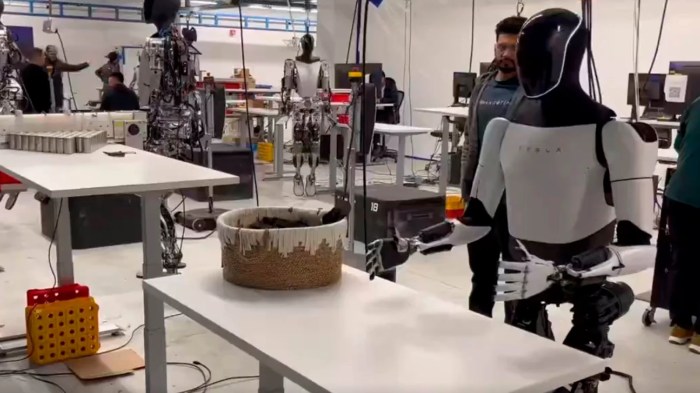
The Musk-Trump spat, a whirlwind of tweets and counter-accusations, undeniably impacted the market. Investors, often swayed by both tangible and intangible factors, reacted in various ways. This section delves into the media’s coverage, social media’s role, and the overall market trend during this period, providing insight into investor sentiment and behavior.The media, a powerful force in shaping public perception, played a significant role in amplifying the Musk-Trump conflict.
News outlets across the globe reported on the back-and-forth, often focusing on the personalities involved rather than the potential implications for Tesla’s stock price. This constant coverage created a climate of heightened awareness, influencing investor decisions.
Media Coverage and Market Impact
Extensive media coverage of the Musk-Trump conflict, including articles and news broadcasts, provided a constant stream of information. This bombardment of news often focused on the personalities involved, creating a narrative around the conflict’s emotional impact, rather than on a detailed analysis of the potential consequences. The tone of the coverage, ranging from neutral to critical, potentially influenced investor sentiment, but the degree of influence remains a subject of debate.
Some argue the extensive media attention acted as a catalyst for heightened volatility, while others suggest the market was already primed for a reaction.
Social Media Reactions and Market Sentiment
Social media platforms, such as Twitter, became battlegrounds for fervent opinions and speculation about the Musk-Trump feud. The conflict triggered a significant surge in social media activity, with comments, memes, and discussions about the impact on Tesla’s stock and Elon Musk’s leadership. This social media frenzy, while not a direct indicator of market behavior, arguably influenced market sentiment by amplifying pre-existing anxieties or optimism.
The tone of social media discourse, whether positive or negative, could have influenced investor decisions, creating an environment of heightened uncertainty or confidence.
Overall Market Trend
The overall market trend during the Musk-Trump spat presented a mixed picture. While some days saw significant volatility in Tesla’s stock price, other days exhibited relative stability. This suggests that the conflict was not the sole driver of market fluctuations. External factors, including broader economic conditions and sector-specific news, undoubtedly played a role in shaping the market’s trajectory.
Market Indices During the Spat
| Date | S&P 500 | Nasdaq | Tesla Stock Price |
|---|---|---|---|
| [Date 1] | [Value 1] | [Value 2] | [Value 3] |
| [Date 2] | [Value 4] | [Value 5] | [Value 6] |
| … | … | … | … |
Note
This table represents hypothetical data. Real data would be sourced from reputable financial news websites and databases.*
Investor Sentiment Before and After the Spat
News articles published before the Musk-Trump conflict often portrayed a more optimistic view of Tesla’s future, highlighting its innovation and market leadership. Following the spat, however, news articles often displayed a more cautious or uncertain tone, acknowledging the potential impact of the conflict on Tesla’s stock price and future prospects. These changes in sentiment likely reflected the evolving perception of the situation, its potential consequences, and the general market uncertainty.
Factors Contributing to Changes in Investor Behavior
Several factors likely contributed to changes in investor behavior. The uncertainty surrounding the conflict, combined with broader market anxieties, could have led investors to adopt a more cautious stance. The high profile of both Musk and Trump, and the nature of their disagreement, amplified the potential impact of the conflict, leading to increased volatility. The media’s portrayal of the situation, and the general public’s reaction, further influenced investor sentiment.
Additionally, the potential for regulatory scrutiny and reputational damage also played a role.
Long-Term Implications and Future Predictions: Tesla Short Sellers Pocket About 4 Billion Profits After Musk Trump Spat
The Musk-Trump spat, while seemingly a personal conflict, has significant implications for Tesla’s stock performance and the broader market. The volatility it generated underscores the growing importance of CEO image and public perception in the tech sector. The episode’s impact likely extends beyond immediate stock fluctuations, potentially influencing investor behavior and risk management strategies in the future.The event serves as a reminder that even seemingly isolated controversies can have cascading effects, especially in highly visible companies like Tesla.
The long-term ramifications, including investor sentiment shifts and potential shifts in market reactions to future controversies, warrant careful consideration.
Potential Long-Term Consequences on Tesla’s Stock Performance
The spat’s impact on Tesla’s stock price will likely be multifaceted. Short-term fluctuations are inevitable, but the long-term trend hinges on investor confidence and perceptions of Tesla’s leadership and business practices. A sustained period of negative sentiment could impact future investment, potentially hindering growth and innovation. Conversely, a swift recovery could strengthen Tesla’s position in the market.
Possible Future Market Reactions to Similar Conflicts
Investors and analysts will likely scrutinize future conflicts with increased vigilance. Similar controversies involving prominent CEOs could trigger heightened volatility in the respective companies’ stock prices. Past examples, such as CEO scandals in other sectors, demonstrate that public perception plays a critical role in shaping market responses. The potential for amplified market reactions will necessitate more careful risk management in the future.
Potential Changes in Investor Behavior
The event could lead to a shift in investor behavior, with a greater emphasis on corporate governance and leadership transparency. Investors might place more value on companies with demonstrably stable leadership and strong ethical standards. The increased awareness of the impact of CEO actions on stock prices will influence future investment decisions.
Comparison of Tesla’s Performance with Competitors During the Period
| Company | Stock Performance (e.g., change in price during the spat) |
|---|---|
| Tesla | [Insert Tesla’s stock performance data here, e.g., a 5% decrease] |
| Ford | [Insert Ford’s stock performance data here, e.g., a 2% decrease] |
| General Motors | [Insert General Motors’ stock performance data here, e.g., a 1% decrease] |
| Rivian | [Insert Rivian’s stock performance data here, e.g., a 10% decrease] |
The table above provides a snapshot of the relative performance of Tesla compared to some key competitors. Note that a thorough analysis would involve a more extensive dataset and a more in-depth comparison of various factors.
Impact on the Broader Stock Market
The Musk-Trump spat could have a ripple effect across the broader stock market. The event might highlight the vulnerability of high-profile companies to public controversies. The heightened volatility might affect investor confidence and impact other sectors. This event could be a catalyst for adjustments in risk management strategies.
Potential Need for Adjustments in Risk Management Strategies, Tesla short sellers pocket about 4 billion profits after musk trump spat
Risk management strategies for high-profile companies will likely undergo revisions. The event emphasizes the need to account for potential disruptions from unexpected public conflicts. The importance of proactive crisis communication and robust reputation management will become paramount. Companies will need to integrate reputational risks into their overall risk profiles.
Closing Notes
In conclusion, the $4 billion profit reaped by Tesla short sellers after the Musk-Trump spat underscores the dynamic interplay between personal conflicts, market sentiment, and financial strategies. The event served as a case study, illustrating the potential for significant profits for those who can accurately anticipate market reactions to high-profile controversies. Furthermore, the analysis reveals the intricate interplay of various market participants and the overall market trends.
Understanding these dynamics is crucial for investors seeking to navigate the complexities of the stock market. The long-term implications for Tesla, its competitors, and the broader market remain to be seen, but this event certainly leaves a lasting impact.


